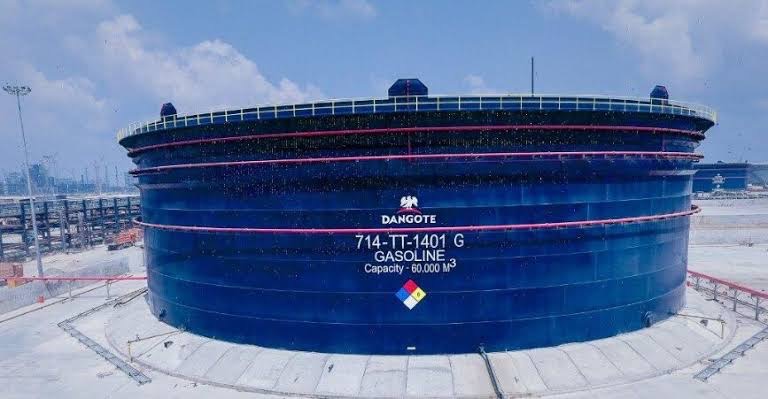KEY POINTS
- Dangote refinery purchased $7.2 million worth of crude from NNPC in July under naira-for-oil.
- Cargo represented 32% of NNPC’s July crude revenue, signaling strong government backing.
- Policy aims to conserve dollar reserves, supply local refineries, and cut fuel import dependence.
According to official documents seen by Billionaires.Africa, Aliko Dangote’s $20 billion refinery purchased 100,000 barrels of crude worth $7.2 million from the Nigerian National Petroleum Company Limited, NNPC, in July, marking the company’s first significant shipment.
In addition to relieving pressure on dollar reserves and stabilizing local fuel markets, the deal represents a major step in Nigeria’s efforts to redirect crude supplies to domestic refineries. It also emphasizes how crucial Dangote’s enormous refinery in Lagos will be in transforming the biggest oil economy in Africa.
Purchase accounted for nearly a third of NNPC’s July crude revenue
According to documents that NNPC provided to the Federation Account Allocation Committee, 340,000 barrels totaling $22.5 million were sold in July.
Of that, 32% came from the 100,000 barrels of Okwuibome crude that were shipped by the ship Sonangol Kalandula from SEEPCO to the Dangote refinery. The cargo, which was valued at $72.1 per barrel, was worth ₦11.2 billion when converted at a rate of ₦1,553.27 per dollar.
220,000 barrels of Antan blend sold for $14 million and another 20,000 barrels in a smaller parcel for $1.27 million were among the remaining July sales.
The deal underscores the government’s determination to sustain the naira-for-crude initiative, first introduced in October 2024. The program mandates that NNPC sell to domestic refineries in local currency rather than dollars, an effort designed to conserve foreign exchange, guarantee steady feedstock for local plants, and reduce Nigeria’s reliance on imported fuel.
Dangote briefly halted local sales of refined products in March, citing difficulties balancing naira revenues against dollar-based crude costs. The government responded by reaffirming the policy and enlisted Afreximbank to advise on exchange-rate mechanisms to ensure fair settlement.
For Dangote, whose net worth Bloomberg pegs at $28.7 billion, consistent crude supply is critical. His Ibeju-Lekki refinery, with a nameplate capacity of 650,000 barrels a day, is the world’s largest single-train refining facility and is expected to significantly reduce Nigeria’s dependence on imported gasoline, diesel, and jet fuel.
Nigeria, the largest oil producer in Africa, spends billions of dollars a year on fuel imports. The refinery is hoping to change that by making Nigeria a net exporter of refined goods. However, there are still unanswered questions regarding the refinery’s capacity to handle local and export demand, pricing transparency, and the amount of crude NNPC will invest in it.
Even though domestic fiscal pressures and international oil prices are still unstable, the July supply indicates that Nigeria is taking steps to make Dangote’s refinery a key component of its larger energy self-sufficiency strategy.



